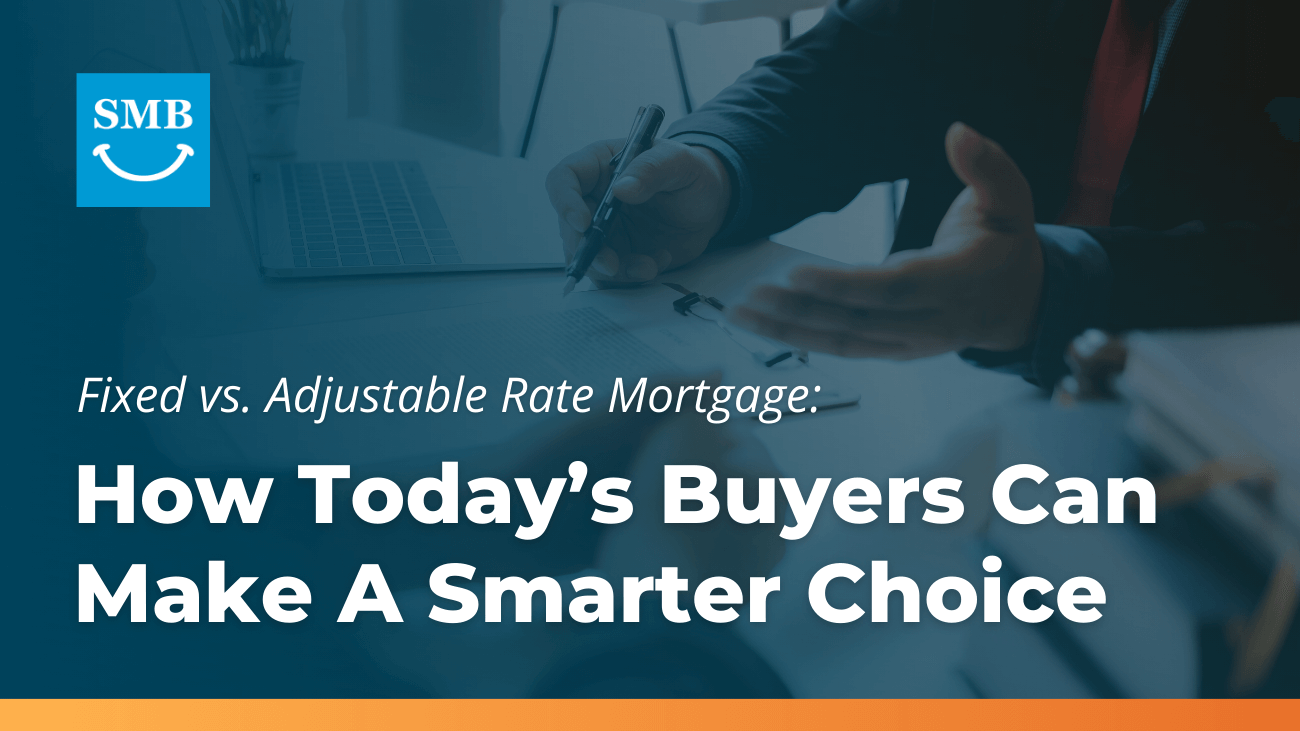What Is a Jumbo Loan and will you need one when moving to Seattle?

Buying a new home is just as stressful as it is exciting. You cannot wait to start your life in the home of your dreams, but the tedious process of getting to that stage can be overwhelming, to say the very least. However, it is a journey that every home buyer needs to take and the more you educate yourself about the process, the easier and uncomplicated it will become.
If you are planning to buy your dream home in Seattle, the very first question that might probably be on your mind is - How will I finance my home? Even if you have the answer to that one, there are so many more pieces of the puzzle that you need to get right.
For example, what kind of mortgage loan will you need? Which lender should you go to? Do you need a mortgage broker? What would be the down payment on it? Would you require a “jumbo loan”?
As real estate prices have been heading up over the past years, putting down roots in the city has gotten way more challenging. This simply translates into the fact that you are going to need a much larger loan when purchasing or refinancing a home in the Emerald City. And that’s where jumbo loans come in.
Put simply, a jumbo loan or jumbo mortgage is nothing but a mortgage loan for an amount that exceeds the industry limits of conforming loans. However, we understand that when it comes to “jumbo loans”, there are a ton of myths, misconceptions, and doubts in the minds of home buyers.
In this blog, we shall dissect whether a jumbo loan is the right way to go for you, some pros and cons of jumbo loans, and what other alternatives and loan program options you can consider. So, let’s dive right in.
Higher house prices, bigger mortgage loans
As of mid-2021 the average house price in Seattle, WA was almost $840,000. That’s up almost 9% since last year. With house listings still not coming online as fast as buyers would like, bidding wars are fierce, with the majority of homes selling in days, and for significantly over the asking price. Analysts expect this to keep pushing up property prices through the end of the year.
Added to it is the fact that more and more households may be forced to buy this year as landlords have been scared off of renting after a year of eviction bans, thus creating more demand for limited homes.
Treasury secretary Janet Yellen has also claimed that higher interest rates could be a good thing. Any switch by the Fed to start raising rates could trigger even more people to buy before they go up further.
As a result, the Seattle real estate market is in a turmoil, with record breaking inflation and rising home prices making it tougher and tougher for buyers to zero in on a home that meets all their criteria.
Whether you are thinking of refinancing your home in Seattle or buying one, you may need a bigger loan this year. So, how big should you go?
Do you need a Seattle jumbo loan?
The biggest home loans are known as jumbo mortgages, or even ‘super jumbo’ home loans.A jumbo loan comes into play when borrowers exceed conforming loan limits. Whether or not you need one depends totally on the conforming loan limit for the year.Let’s look into the conforming loan limits for the year 2022 and what that could mean for your potential financing decisions:
Conforming loan limits for 2022
Each year the Federal Housing Finance Agency (FHFA) sets the loan limits for traditional mortgage loans made by most banks. These are considered as ‘conforming loan’ limits (loans that conform to industry guidelines) and are higher in areas where the average house costs are higher.
For 2022, the FHFA raised the national conforming loan limits to $647,200. This means that all loans under this amount conform to the industry guidelines for this particular year. Any loan larger than this would typically be considered a jumbo loan or a jumbo mortgage.
Why You May Not Need A Jumbo Loan After All
Remember that these limits are all about the actual loan amount you need, not the purchase price of the home. So, if you can somehow manage to keep the borrowing amount below the set threshold, you are good. Therefore, the pivotal component here becomes the down payment.
For example, if you are buying an average priced home for $840,000, and make a 10% down payment, you would only need to borrow $756,000. Which will keep you under the conforming loan limit.
In fact, if you purchase a home for $970,000, and make a 20% down payment, you only need to borrow $776,000. Still keeping you under the jumbo mortgage threshold.
How Is A Jumbo Loan Different?
At the surface level, the loan amount is what typically differentiates jumbo mortgage loans from other types of home loans. However, there are also some additional differences you can expect with a jumbo versus conforming loan, given these are riskier for lenders to give out. The most common ones are availability, down payments, and the underwriting requirements. Let’s understand them all in detail:
Availability
Jumbo loans may not always be available. Due to their size mortgage amount, lenders view these loans as riskier to make. They are at greater risk by giving so much money to one borrower, and understandably so.
So, during more uncertain times, they may raise the qualification requirements for these loans, price in their higher perceived risks, or may even temporarily suspend making these loans, as they have often done with home equity lines of credit as well.
Therefore, availability becomes a huge factor even before considering getting a jumbo loan. If the market conditions are in your favor, you may be able to get a jumbo loan by meeting the minimum requirements, but in times of economic turbulence, it becomes harder to get approved for a jumbo loan.
Down Payments
Needless to say, jumbo loans often come with higher down payment requirements, given the risk factor involved for lenders. If you are going for a jumbo loan, you can easily expect to make a down payment of at least 10% to 20% when borrowing more than the conforming loan limit.
Therefore, the higher the loan amount, the higher would be the down payment requirements. Also, the down payment increases significantly if you are buying a second home or a multi family unit.
Ultimately, the down payment varies from lender to lender and depends on your credit score as well as the loan amount, and can be higher than 20% as well in some cases.
Underwriting Requirements
Given these loans are larger and the risk involved is higher, there are additional and stricter underwriting requirements for jumbo loans, including:
- Higher credit score requirements
- Second appraisals
- More assets
- Stricter DTI ratios

Alternatives To Jumbo Loans
Given how complex the application and approval process can be, a Seattle jumbo loan isn’t always the way to go for every buyer and there can be several benefits to staying below the jumbo mortgage loan amount. These are:
- Easier underwriting
- Faster loan processing
- Better interest rates
- Lower down payments
- More loan program options

Given these benefits, it definitely makes sense to avoid jumbo loans, if it is possible. Therefore, if you would prefer to stay under the conforming loan limit or do not want to get into the complexities of procuring one, you have multiple other options available for you to finance your home. Also, if you have a high debt to income ratio and poor credit score, it makes sense to stay within the conforming loan limit.
It is up to you to weigh the pros and cons of jumbo loans vs those of remaining within the conforming loan limits. But, if you do consider the latter, here are your options:
Make A Larger Down Payment
Remember, it is all about the loan amount and not the price of the house you are purchasing. So, you can buy as expensive a home as you like, and providing you only borrow $776,250, you are still within the conforming loan limits. Just make up the difference with your down payment. This is a great way to still get your dream house without relying on a hefty loan amount, as long as you are able to save up for a larger down payment.
Use Multiple Loans
To avoid going over the conforming loan limit, you may choose to get two loans, and keep your main mortgage loan under the jumbo territory. For example a $776,000, 80% first mortgage, a $97,000 10% second mortgage, and a 10% down payment. Also known as a piggyback loan or 80/10/10.
Explore New Places To Buy
You may find that you can get a lot more home than you expect if you take a look at all of the Seattle suburbs and neighborhoods on offer. Some offer a lot more value and space for the money than others. Some are even choosing to go as far as Tacoma where house prices are much lower, to find even better deals.
The biggest decision you will need to make is finding a home in a location that meets your needs, while also being within your budget. You might have to go for a compromise, but it's wise to start with a list of factors that you are unwilling to settle on and then create one for stuff you can budge on. This way, you’ll be able to explore more places where you can buy your dream home.
Summary
Seattle real estate has become even more expensive, and seems likely to keep on growing - making jumbo loans inevitable. While you may need a bigger loan this year, you may not necessarily need a jumbo loan to get a great home of your own. So, it’s advisable to conduct comprehensive research before jumping to any conclusions or making the move on your mortgage loan application.
Jumbo loans are complex and nuanced, and can leave you perplexed and far more stressed than you already might have been during the home buying process. Whether or not you need a jumbo loan, get in touch with a Seattle Mortgage Broker to understand the best course of action for you.
Seattle’s Mortgage Brokers have access to wholesale interest rates from banks and other lenders, so we can often get you a better rate. We can also help you compare rates and costs from different lenders, so you can be sure you're getting the best deal possible - whether or not you end up applying for a jumbo loan. Our brokers assist you through the entire process so you can make an informed financial decision.


Should You Use a Mortgage Broker? Everything You Need to Know First

How to Find the Right Neighborhoods in Seattle for Your Budget and Lifestyle

Warrantable vs. Non-Warrantable Condos: What Every Buyer Needs to Know Before Financing

How Much Does It Cost to Refinance a Mortgage in Seattle? A Homeowner’s Guide
.png)
How Often Can You Refinance Your Home?
.png)
The Complete Guide to For Sale By Owner (FSBO) in Seattle

10 Questions Every Seattle First-Time Home Buyer Asks

Ultimate Seattle Mortgage Loan Documents Checklist

Your Complete Guide to Seattle Property Tax

Why You Should Work with a Mortgage Broker

Where to Find the Best Local Mortgage Broker

Where Are The Best Places To Live In Seattle?

What’s the Best Way to Save Money for a House in Seattle?

When is the Best Time to Refinance a Home?

What is the Jumbo Loan Limit in Seattle 2020?

What You Need to Buy a House in Seattle

What Is a Jumbo Loan and will you need one when moving to Seattle?

What is the Jumbo Loan Limit in Seattle?

What Is A Non-Warrantable Condo?

What is the Best Down Payment Amount on a House in Seattle?

What is PMI Mortgage Insurance? And Why It Is Not As Bad As You Think

What Is A Cash-Out Refinance?

What do Home Loan Underwriters Look For?

What Down Payment Do I Need for a House?

What Are The Costs of Buying a Home?

What Are The Best Neighborhoods In Seattle For Families?

FAQ: What Are the VA Home Loan Requirements?

WEST SEATTLE JUNCTION ; Seattle Neighborhood Tour

What are RSUs and How to Spend Them

Understanding Mortgage Down Payments

Top 5 Seattle Suburbs to Buy In 2021

Understanding Down Payments in Seattle

The Ultimate Mortgage Document Checklist

Top 10 Mortgage Questions You Should Ask Your Broker

The Worst First-Time Homebuyer Mistakes

The Top 5 Seattle Suburbs for 2020

The Best Seattle Neighborhoods in 2020

How to Find the Best Mortgage Refinance Companies in Seattle

The Best Seattle Neighborhoods for Families

The Best Neighborhoods in Seattle to Buy a Home

The 7 Best Seattle Suburbs for Families

Seattle Neighborhood Guide: The Top 10 Most Affordable Places To Live In Seattle

SOUTH LAKE UNION ; Seattle Neighborhood Tour

Seattle Summer Housing Market Guide 2020

Seattle Housing Market Update 2020

Seattle Housing Market Hacks

Save Money When Buying a House in Seattle

Save Money on Your Mortgage Refinance

Moving to Seattle with a Family? Here's the BEST Suburbs For You!

Refinancing To Reduce Your Bills and Increase Available Cash

Neighborhoods in Seattle to Buy a Home 2020

Real Estate Trends in Seattle

Mortgage Down Payments in Seattle

MAGNOLIA ; Seattle Neighborhood Tour

Mistakes to Avoid with Cash-Out Refinance

How to Refinance Your Home in 9 Steps

Jumbo Loan Limit vs Conforming Loan Limit in Seattle for 2021

KIRKLAND ; Seattle Neighborhood Tour

Jumbo Loan Limit in Seattle for 2021

ISSAQUAH ; Seattle Neighborhood Tour

Is My Credit Score Good Enough to Buy a House?

How to Buy a House; Home Buying 101

How to Lower Your Monthly Mortgage Payment

How to Get the Best Rate for Your Home Loan

How to Buy a House for Less

How Much Home Can I Buy in Seattle?

How Much Do You Really Need for a Down Payment in Seattle?

How Much Home Can I Afford?

Home Price Forecast for Seattle 2020

How Hot is the Seattle Real Estate Market?

How Hot is the Seattle Real Estate Market in 2022?

Home Inspection Questions You Need to Ask

Do You Need a Realtor to Buy a House in Seattle?

FHA vs. Conventional Loan: Which Mortgage Is Right for You?

Find the Best Mortgage Lender for Your Home Loan

Federal Housing Administration Loans 2021

Down Payment Requirements in Seattle

FACTORIA and SOMERSET ; Bellevue Neighborhood Tour

Everything you Need to Know About Seattle Jumbo Mortgages

Everything You Need to Know About VA Loans

Advice To A First Time Home Buyer: Down Payment Assistance Programs Exist for Millennials

CROSSROADS ; Bellevue Neighborhood Tour

Down Payment 101: How Much Money Do I Need to Buy a House?

COVID-19 Mortgage Help for Homeowners

Comparing ARM vs. Fixed Rate Mortgage

Can I Afford To Buy A Home In Seattle?

Choosing the Best Lenders for Home Loans

How to Use Restricted Stock Units to Buy a Home in Seattle

ARM v. Fixed Mortgage: Which is Right For You?

Ballard or Queen Anne? The Best Neighborhoods of Seattle to Buy a House

Avoiding the Worst Seattle Mortgage Lenders

Are You Buying a House in Seattle? Here’s the Ultimate Survival Guide

Fixed vs. Adjustable Rate Mortgage: How Today’s Buyers Can Make A Smarter Choice

ALKI BEACH ;; A Seattle Neighborhood Tour

A Complete Guide to Refinancing Your Home Loan

8 Ways to Lower Your Mortgage Payment

8 Mistakes to AVOID When Mortgage Loan Refinancing

7 Seattle Suburbs for Families


















